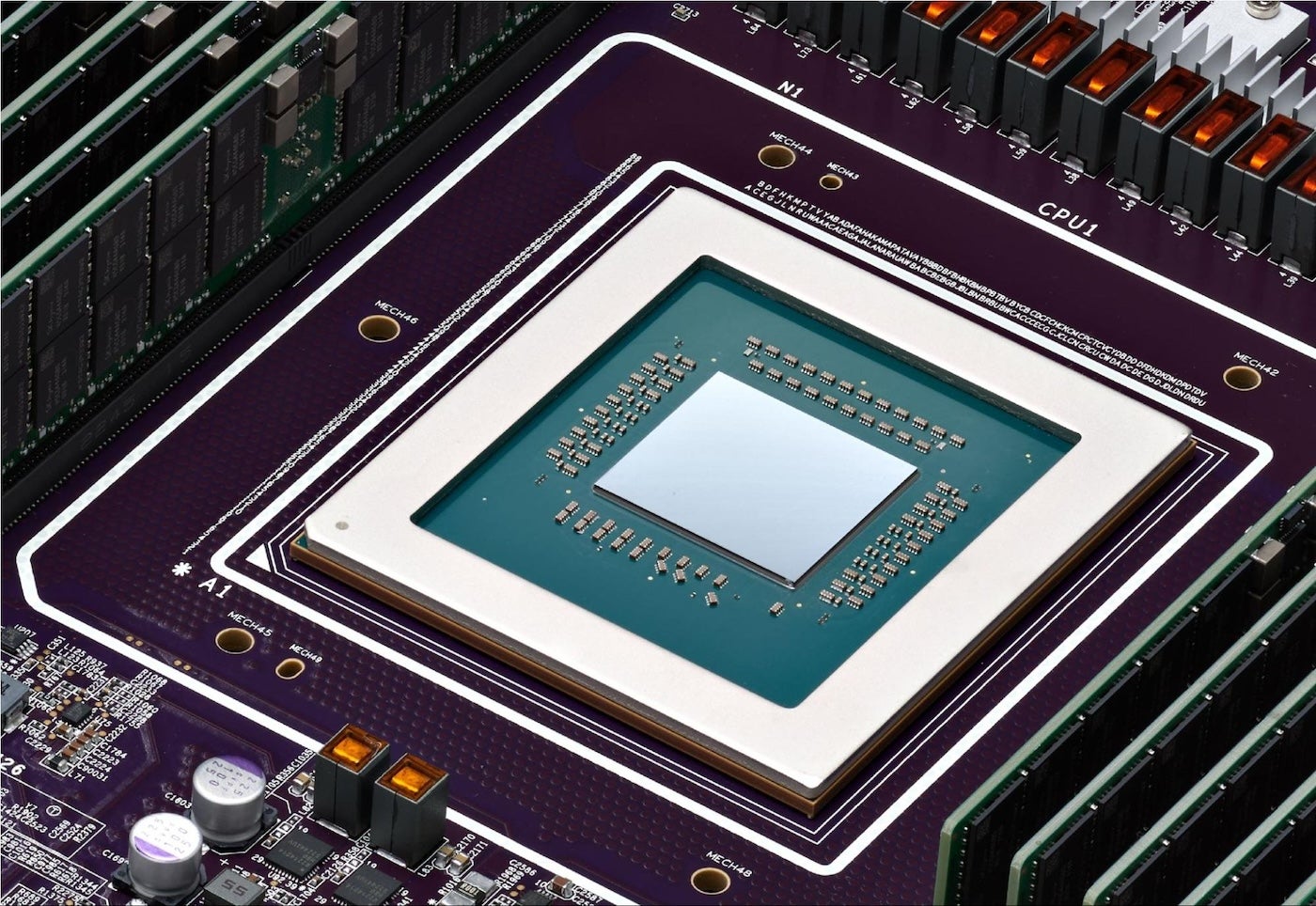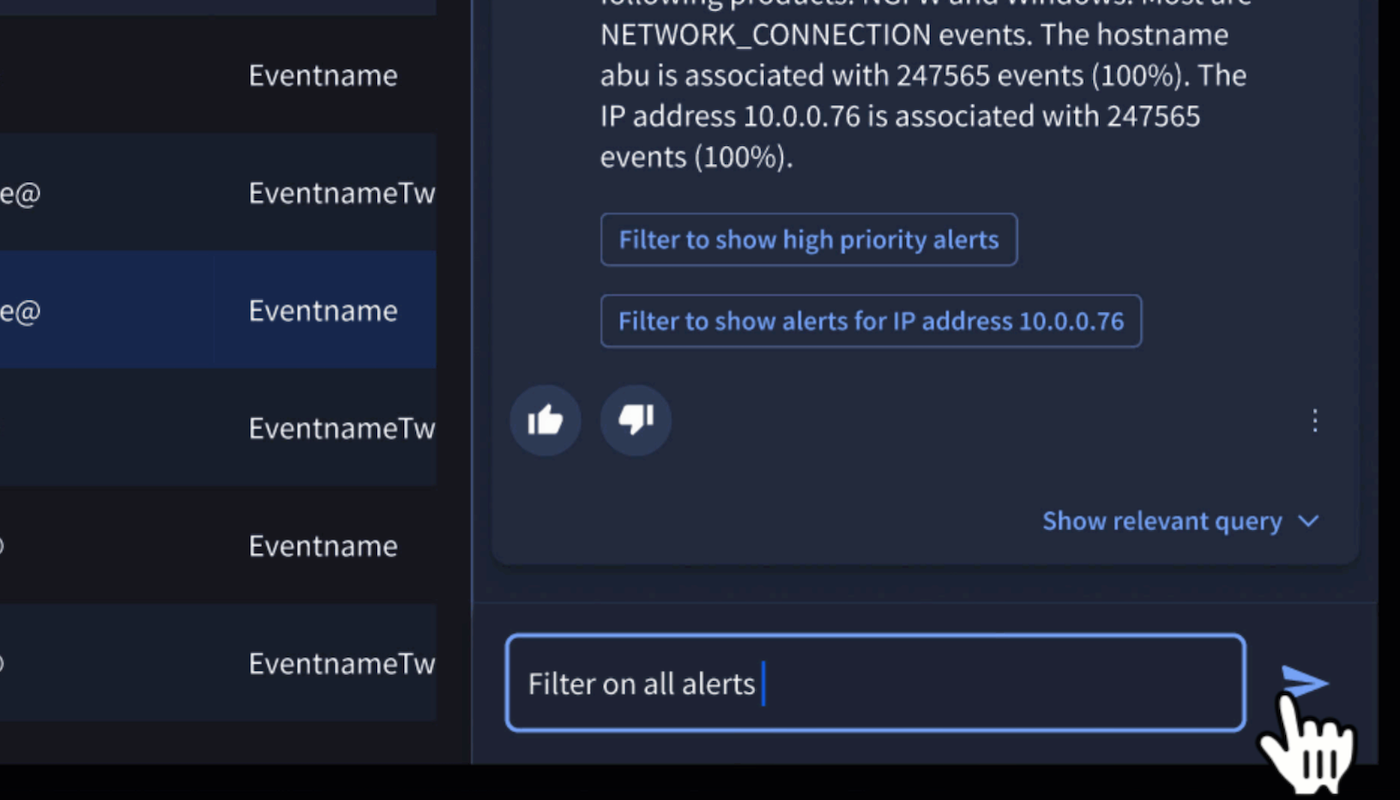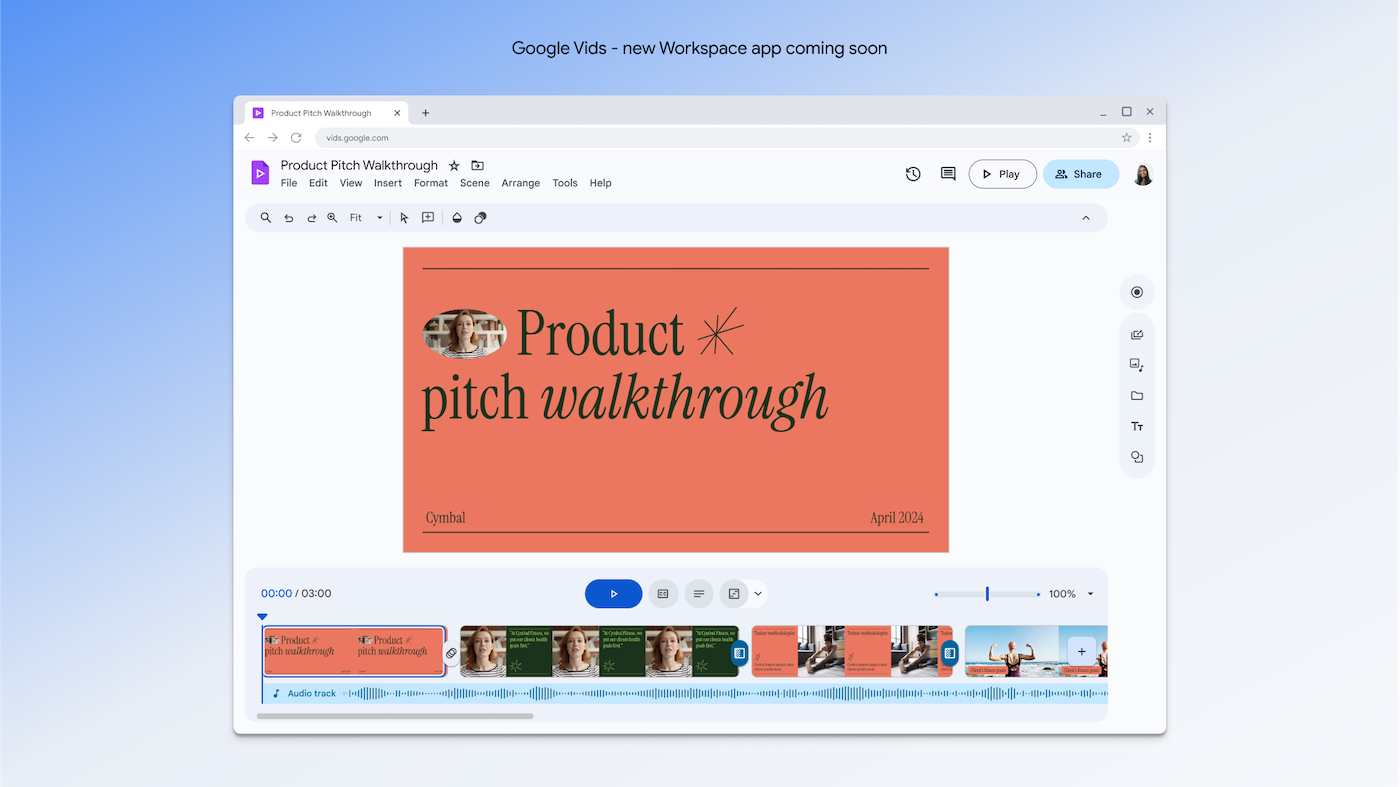Google Cloud announced a new enterprise subscription for Chrome and a bevy of generative AI add-ons for Google Workspace during the Cloud Next ‘24 conference, held in Las Vegas from April 9 – 11. Overall, Google Cloud is putting its Gemini generative AI in place as much as it can; for instance, the company is betting on providing Vertex AI infrastructure for other companies’ AI and hardware like the new Axion CPU.
We attended a pre-briefing for an early look at the new features and tools, including a generative AI video service for marketing and internal communications use. Here’s a rundown of what we consider the most impactful enterprise news from Google Cloud Next.
Chrome Enterprise Premium adds security controls
Enterprise browsers may be an up and coming trend. Last year, Gartner predicted that browsers made specifically with enterprise-level security and support in mind would grow to widespread adoption by 2030. Google is contributing to the proliferation of enterprise browsers with Chrome Enterprise Premium. This enterprise tier adds an extra level of security to Chrome, enhancing it with:
- Enterprise controls for policy enforcement, management of software updates and extensions.
- Event and device reporting.
- Forensic security reporting.
- Context-aware access controls.
- Threat and data protection.
Chrome Enterprise Premium is available today, April 9, wherever Chrome is offered. It costs $6 per user per month.
Axion is Google’s first Arm-based CPU
Some Google Cloud services, such as BigQuery, will soon run on Google Axion Processors, Google’s first custom Arm-based CPU for data centers (Figure A). Google Cloud said Axion shows 50% better performance than comparable current-generation x86-based virtual machines. Instances on Google Compute Engine, Google Kubernetes Engine, Dataproc, Dataflow, Cloud Batch and more will be available later in 2024.
Figure A

Vertex AI will ground itself in Google Search
Starting April 9, models trained in Vertex AI will be grounded in Google Search. This could prove controversial depending on exactly what data is being used for the training.
Grounding AI is part of the trend of Retrieval Augmented Generation, which avoids “hallucinations” by checking the AI against genuine information. Google Cloud says grounding will provide models built on Vertex AI with “fresh, high-quality information.”
An abundance of AI additions for Google security products
Google Cloud’s other announcements centered on adding Gemini into security products, a move possibly intended to compete with Microsoft’s thorough integration of Copilot into its security suites.
Gemini AI will now be available in Google Security Operations (Figure B) and Threat Intelligence. In particular, Gemini will be able to help with investigations in Chronicle Enterprise and Chronicle Enterprise Plus starting at the end of April. As of April 9, security analysts can use Gemini to talk in natural language to Mandiant threat intelligence software.
Figure B

Gemini in Security Command Center received a boost from Gemini; as of April 9, the AI features in preview can scan for threats based on natural language prompts, and summarize alerts and attack paths.
“Detection engineers can create detections and playbooks with less effort, and security analysts can find answers quickly with intelligent summarization and natural language search,” said Ronald Smalley, senior vice president of Cybersecurity Operations at Fiserv, in a Google Cloud press release. “This is critical as SOC teams continue to manage increasing data volumes and need to detect, validate, and respond to events faster.“
Gemini Cloud Assist in Google Cloud’s security services will now include the following AI-powered capabilities in preview:
- Identity and access management recommendations for improved IAM posture.
- Assistance with encryption key creation.
- Suggestions for how to implement confidential computing protection.
Create video with AI and more in new Google Workspace offerings
Google unveiled a new Workspace platform called Google Vids (Figure C), with which generative AI can help employees create promotional or informative videos.
Figure C

First, Google Vids will create a storyboard the user can customize. From there, Google Vids can create the video and add voiceover with preset AI voices or custom audio.
Google Vids will be an entirely new platform that will live alongside Docs, Sheets and Slides. Vids will be accessible through Workspace Labs in June.
More Google Workspace announcements
- An AI meeting summarization and translation tool, which will cost $10 per user per month.
- File classification and protection from the AI Security add-on, which will cost $10 per user per month.
- In Gmail, AI will enable “Polish My Draft” and “Help Me Write” tools, the latter of which can be used via voice commands on mobile.
- Google Gemini is coming to Chat and Docs for creating cover images.
- Vertex AI will be integrated into Google Workspace.
- HubSpot extension for Gemini for Google Workspace.
Gemini 1.5 Pro comes to Vertex AI and Data Cloud
Google announced a lot of changes coming to the Data Cloud portfolio in databases and data analytics. The largest was the availability of Gemini 1.5 Pro in Vertex AI, which enables a one million token context window.
SEE: Everything you need to know about Google Cloud Platform. (TechRepublic)
Google continues to expand Gemini’s integrations and capabilities — in preview today are Gemini in Looker and Gemini in BigQuery. Additional new features in BigQuery available in preview or private preview today include Vertex AI document and audio insights, vector embeddings and matching, and more.
Other announcements (in preview unless indicated otherwise) include:
- Google Gemini in Databases.
- Vector support and LangChain integration in Databases.
- Vector support, natural language support and model endpoint management for AlloyDB.
- Workload isolated access from analytics engines in Bigtable Data Boost.
- Expanded disaster recovery capabilities and under two seconds maintenance (in general availability) in Cloud SQL.
- New instance size for Memorystore (in general availability) and support for two new persistence options in Memorystore (in preview).
- Customer managed encryption keys in Cloud Firestore.
TPU v5p enters general availability
Google’s TPU v5p AI accelerator is now in general availability, allowing organizations to use it for AI inference and training. In addition, Google Kubernetes Engine is now supported on TPU v5p.
Advancing hypercomputing and cloud computing
Google Cloud will be working with NVIDIA hardware to power Google’s AI training infrastructure. Announcements from the cloud infrastructure group included:
- A3 Mega VMs powered by NVIDIA H100 Tensor Core GPUs for large-scale AI training, generally available in May.
- Hyperdisk ML, a new block storage service for AI inference/serving workloads, is available in preview now.
- JetStream, a throughput and memory-optimized inference engine for LLM training, is available on GitHub today.
- Dynamic Workload Scheduler, a service for managing resources on Google Cloud to optimize AI workloads according to computing capacity, is now in preview.
- Duet AI for Developers is now Gemini Code Assist.
Competitors to Google Cloud
Google’s wide-ranging product catalog means it has a lot of competitors in different sectors. In generative AI ecosystem and enterprise support in particular, it competes and often interoperates with Microsoft’s Copilot AI, AWS, IBM, and SAP. The Axion chip in particular could help Google push into the data center chip space dominated by Amazon and NVIDIA.
TechRepublic is covering Google Cloud Next ‘24 remotely.